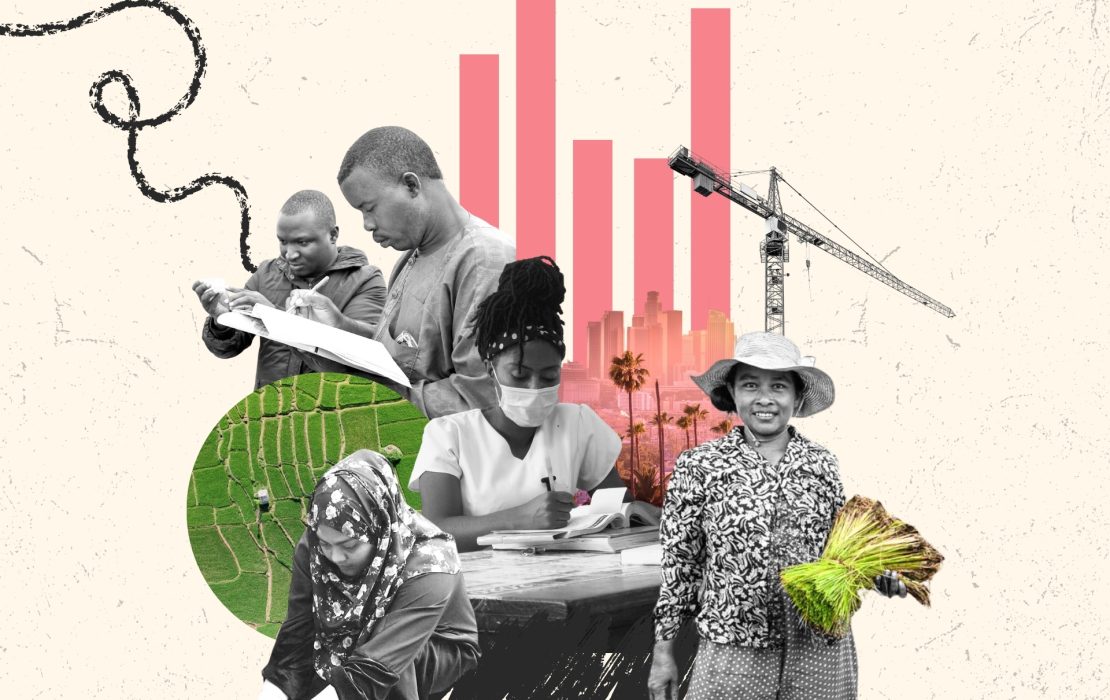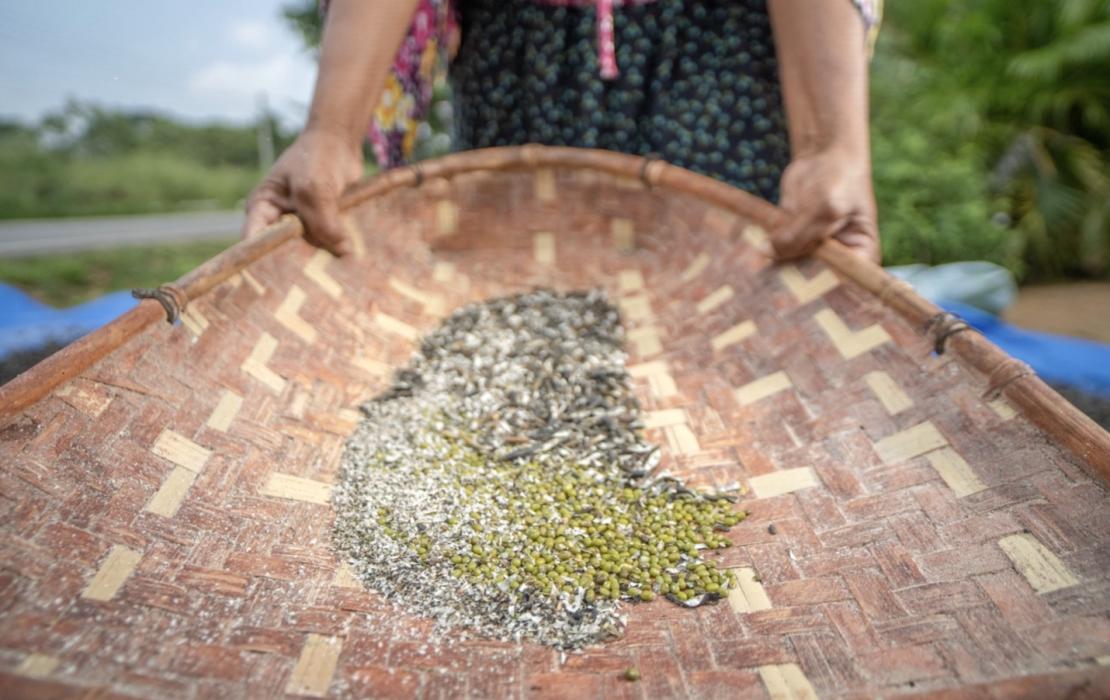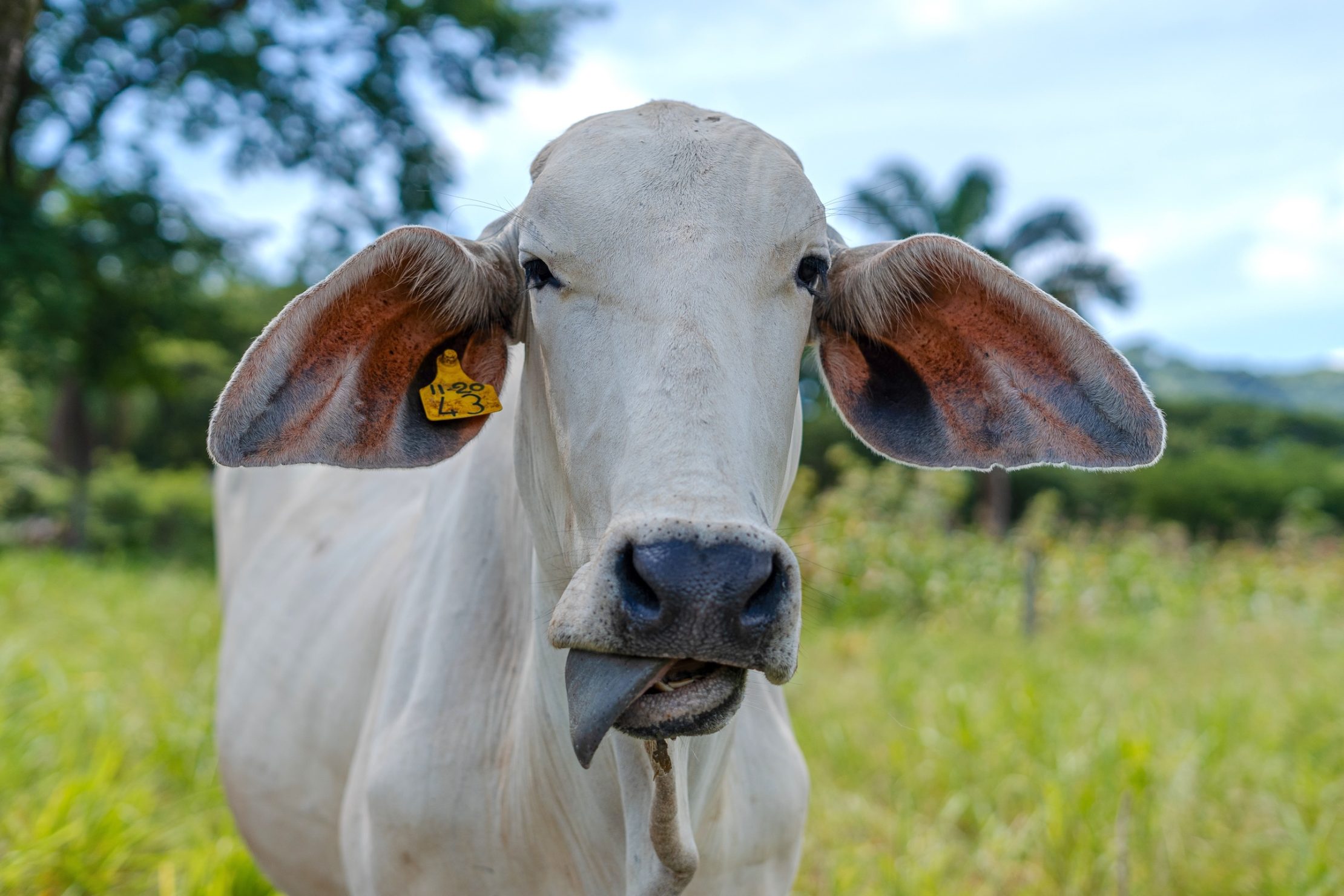
Photo: FAO Costa Rica
In the agriculture and land-use sectors, climate change impacts such as erratic rainfall, heatwaves and soil degradation directly affect productivity, disrupt supply chains and threaten economies.
Private sector investments in climate-resilient agriculture and land use can reduce climate risks to their value chain and create new business opportunities by opening access to emerging markets for sustainable products. But despite the clear benefits, engaging the private sector in climate action remains a challenge.
Many businesses, especially small- and medium-sized enterprises, face barriers that constrain their ability to make climate-related investments. They have limited access to usable climate risk data and affordable finance. High upfront costs and long investment payback periods further impede their engagement, particularly in adaptation, where returns are often indirect or diffuse.
Moreover, at the policy level, many countries lack frameworks to incentivize private sector investments and means to monitor and report them. These challenges reduce the private sector’s ability to assess risks, identify investment opportunities and contribute to national climate and resilience goals.
To address these challenges, the SCALA programme, led by UNDP and the Food and Agriculture Organization of the United Nations (FAO), has been working with countries to create stronger partnerships between public institutions, private companies and producer organizations.
The goal is to develop climate-smart value chains that not only reduce emissions and enhance resilience but also offer commercial value for investors. To achieve that, the programme strengthens institutional frameworks, improves access to finance and designs viable, scalable projects that align with national climate plans while identifying entry points for the private sector to engage.
Reducing deforestation in the cashew sector in Cambodia
In Cambodia’s northeastern province of Stung Treng, cashew farming is expanding rapidly, driven by rising international demand.
However, cashew cultivation is increasingly vulnerable to climate risks such as delayed rainfall, prolonged dry spells and rising temperatures. The absence of adaptation investments, such as drought-resilient cashew varieties, climate-informed planting calendars and adequate storage and irrigation infrastructure, further heightens exposure to climate shocks.
At the same time, the sector’s expansion is placing pressure on forested landscapes and surrounding ecosystems, as unplanned cultivation often encroaches on ecologically sensitive areas. Many smallholders, often unaware of the long-term environmental and economic impacts, have cleared forested areas, reducing biodiversity, disrupting local water cycles and undermining the natural climate regulation functions that forests provide.
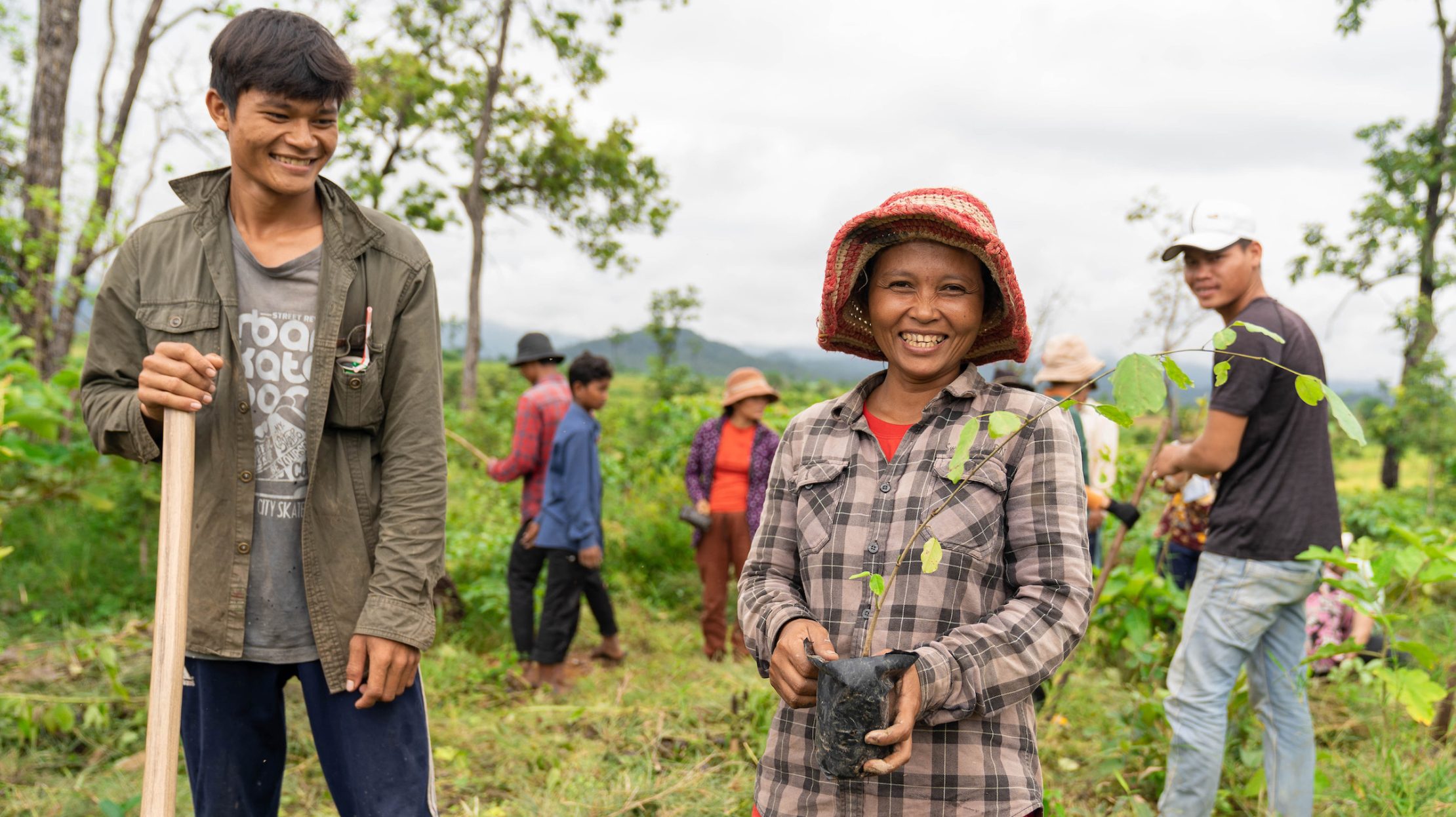
Photo: Manuth Buth / UNDP Cambodia
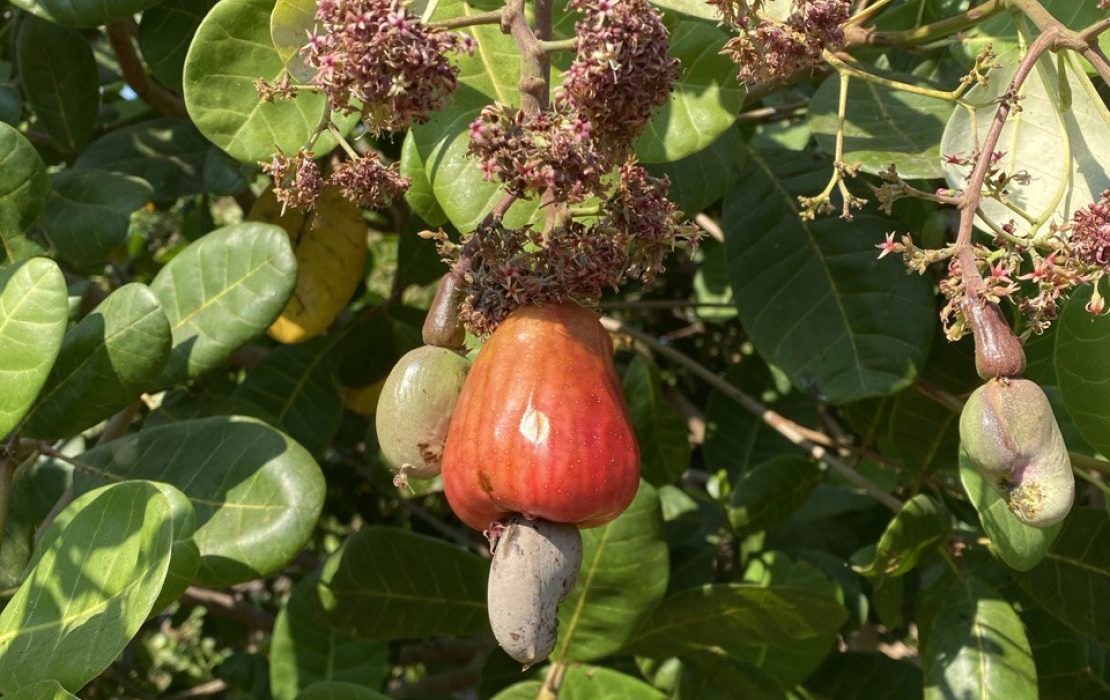
In Cambodia's Stung Treng Province, the cashew harvest typically begins in early March and continues through late May. Photo: Sreylen Hak / UNDP Cambodia
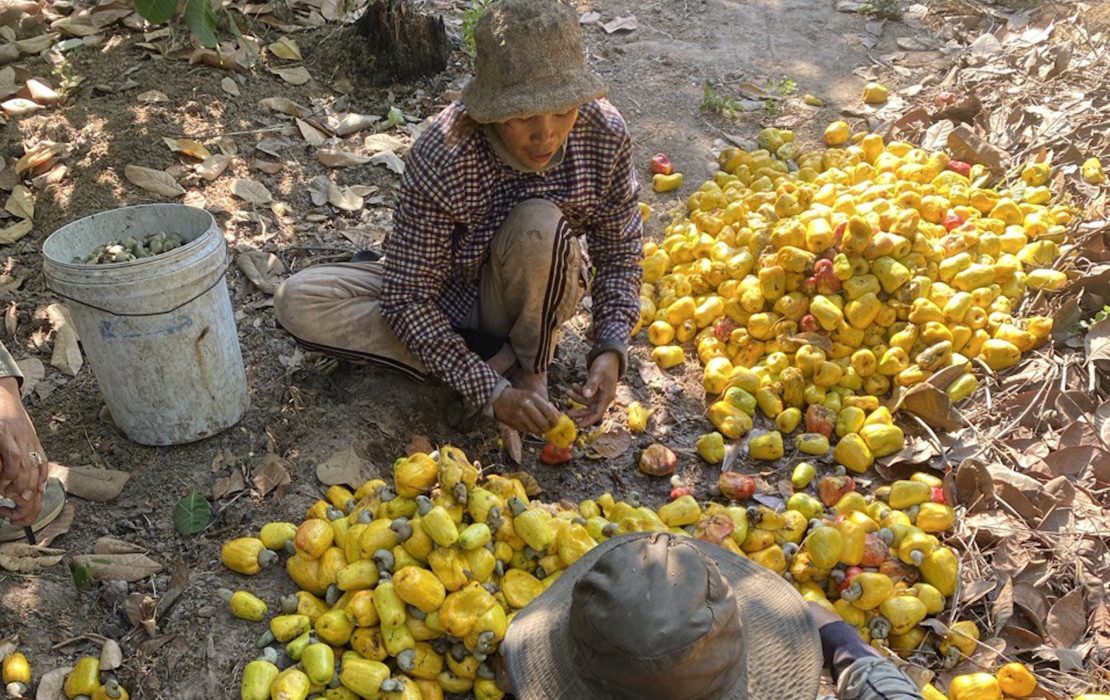
The SCALA programme brought together government agencies, local farmers, private sector actors and civil society to promote sustainable cashew production. Photo: Sreylen Hak / UNDP Cambodia
To address these issues, the SCALA programme has facilitated stakeholder consultations and analytical work in collaboration with government institutions, producer organizations and private actors to promote climate-resilient practices and strengthen the cashew value chain. The findings point to the need for targeted adaptation measures, such as climate-resilient farming practices, improved post-harvest infrastructure and financing models that incentivize sustainable production. Together, these measures can enhance the sector’s resilience to future climate shocks.
As part of the collaboration facilitated by the SCALA programme, the Agricultural and Rural Development Bank (ARDB) is offering green loans to farmers and cooperatives to support sustainable growth in the cashew value chain. These loans are contingent on compliance with environmental safeguards, such as avoiding deforestation and adopting more sustainable land-use practices.
Furthermore, since Cambodia exports most of its cashew in raw form – limiting opportunities for value addition, job creation and domestic economic growth – the Cambodia Cashew Federation (CCF) has played a key role in identifying opportunities for investments in local processing and exploring cross-border collaboration with more established processors in neighboring Viet Nam.
Together, these measures aim to reduce environmental degradation, create added value through local processing and support the transition to climate-resilient cashew production systems that benefit both producers and ecosystems.
Climate-resilient cashew and cassava in Côte d’Ivoire
Côte d’Ivoire is the world’s top producer of raw cashew nuts and a regional leader in cassava production. Both crops are essential for rural incomes, food security and employment, particularly for women involved in processing.
Cashew trees can accommodate moderate dry spells and, therefore, hold strong potential as a climate-resilient crop. Cassava, as a staple food, is key to local diets and is commonly processed into attiéké, a traditional Ivorian dish. However, both value chains face challenges related to efficiency, investment and climate vulnerability.

Women in Côte d’Ivoire play a central role in cassava and cashew processing and stand to gain significantly from improvements in processing efficiency. Photo: UNDP Cote d’Ivoire
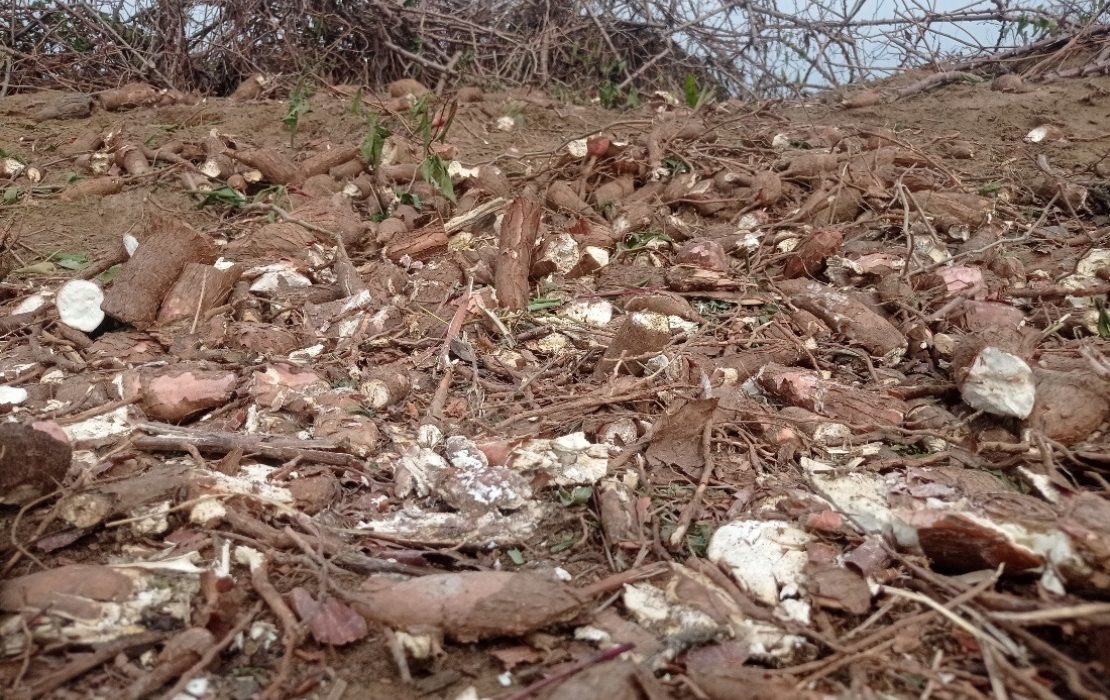
The SCALA programme is working to address post-harvest losses through improved cassava processing, storage and market access. Photo: UNDP Cote d’Ivoire
The SCALA programme interviewed actors across both value chains, from producers to international wholesalers and scientists, to identify barriers to private sector investment and strategies to unlock climate-resilient growth. A multi-stakeholder dialogue was then convened, bringing together representatives from the public sector, private companies, cooperatives and local banks, to discuss and validate these findings and agree on potential de-risking measures to facilitate investment in climate-resilient cashew and cassava production.
A key challenge that emerged in the consultations was that financial institutions often view small-scale producers as high-risk due to lack of collateral and formal financial records. The multi-stakeholder dialogues identified a series of measures that could help de-risk these investments.
For example, digital platforms that pool producer data and credit histories could help mitigate risks, making lending more viable for banks and improving access to credit for farmers. Bundling credit with crop insurance and technical assistance can also reduce the risk of crop failure while supporting smallholder resilience and business viability. Furthermore, training local banking agents on climate-smart financial products can help popularize them and incentivize their adoption.
Another measure that could improve the value chains in both sectors is incorporating gender considerations into investment plans. For example, since women play a central role in cassava processing and are also actively engaged in cashew processing, improving processing efficiency could significantly boost incomes for women-led cooperatives and businesses, while making the products less perishable.
Côte d’Ivoire is also working on attracting investments that ensure gender considerations are integrated into value chain development by using the UNDP-FAO Climate Action Review tool developed under the SCALA programme.
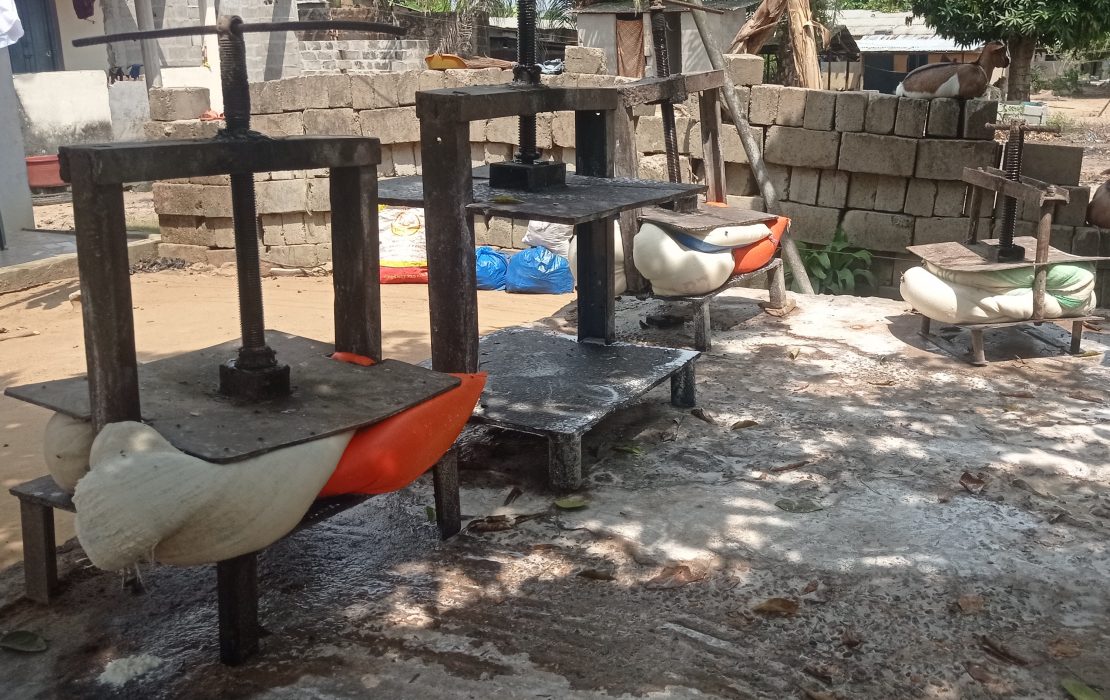
Women-led cooperatives in Yoboué́kro, Côte d’Ivoire, use traditional cassava pressing methods to minimize post-harvest losses and boost the value of their harvests. Photo: UNDP Cote d’Ivoire
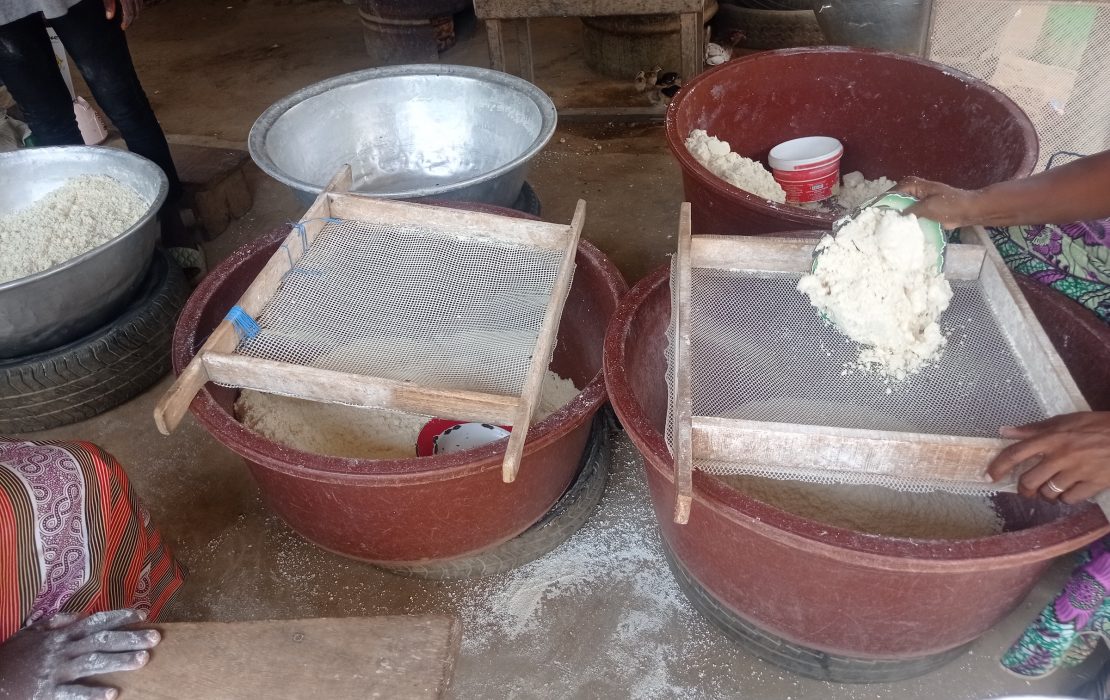
Women carefully process cassava by hand—an essential step that helps preserve product quality and helps support local livelihoods. Photo: UNDP Cote d’Ivoire
Deforestation-free beef production in Costa Rica
Costa Rica has assumed a global leadership role in biodiversity conservation and climate action, demonstrating its commitment to sustainability through progressive policies and strategic frameworks. However, implementation challenges persist, particularly in productive sectors such as livestock farming, which has historically contributed to deforestation and land degradation.
To address these issues, Costa Rica developed a national technical standard for deforestation-free beef. With support from the SCALA programme, the Ministry of Agriculture and Livestock (MAG), the Livestock Corporation (CORFOGA) and the National Standards Body of Costa Rica (INTECO) jointly developed the standard, which provides guidelines for certifying deforestation-free beef production and promotes environmentally sustainable practices, animal welfare and traceability throughout the entire value chain.
A pilot project in the Brunca region tested the application of this certification in fifteen cattle farms, supporting the implementation of sustainable practices such as silage production and the establishment of fodder banks to ensure feed availability during both dry and rainy seasons. These practices enhance resilience to climate variability and support year-round livestock productivity. Participants in the pilot also receive technical assistance from MAG and CORFOGA, including support for adopting climate adaptation measures and preparing for future certification.
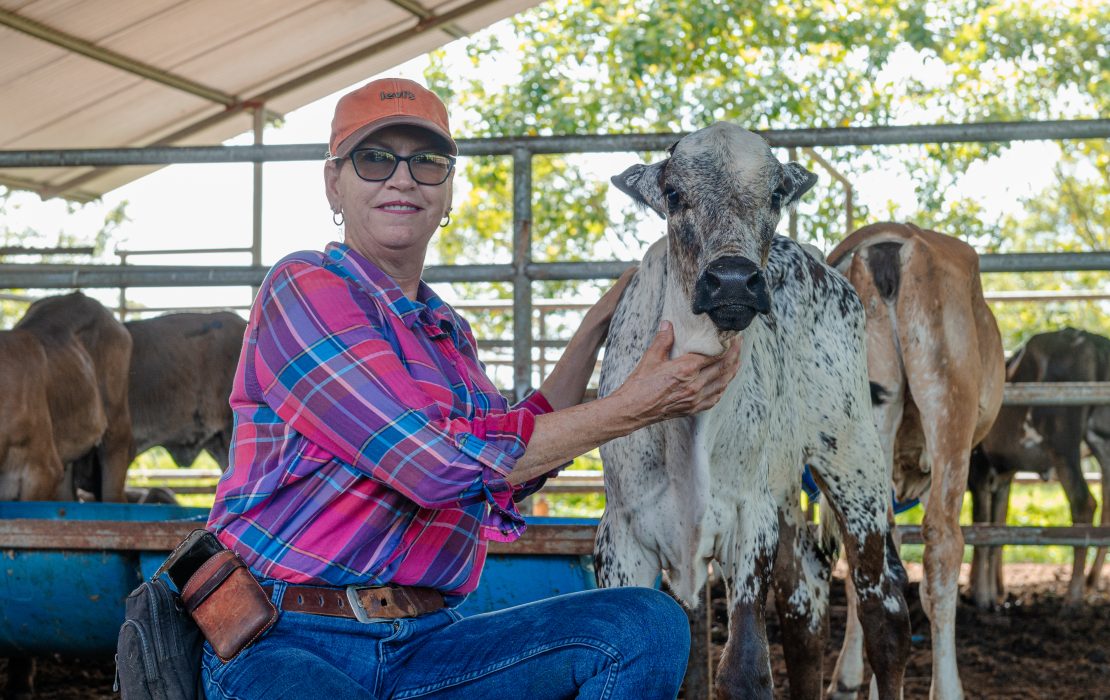
The deforestation-free beef certification scheme promotes gender-inclusive approaches to ensure that women and men have equal opportunities to participate in and benefit from sustainable beef value chains. Photo: FAO Costa Rica
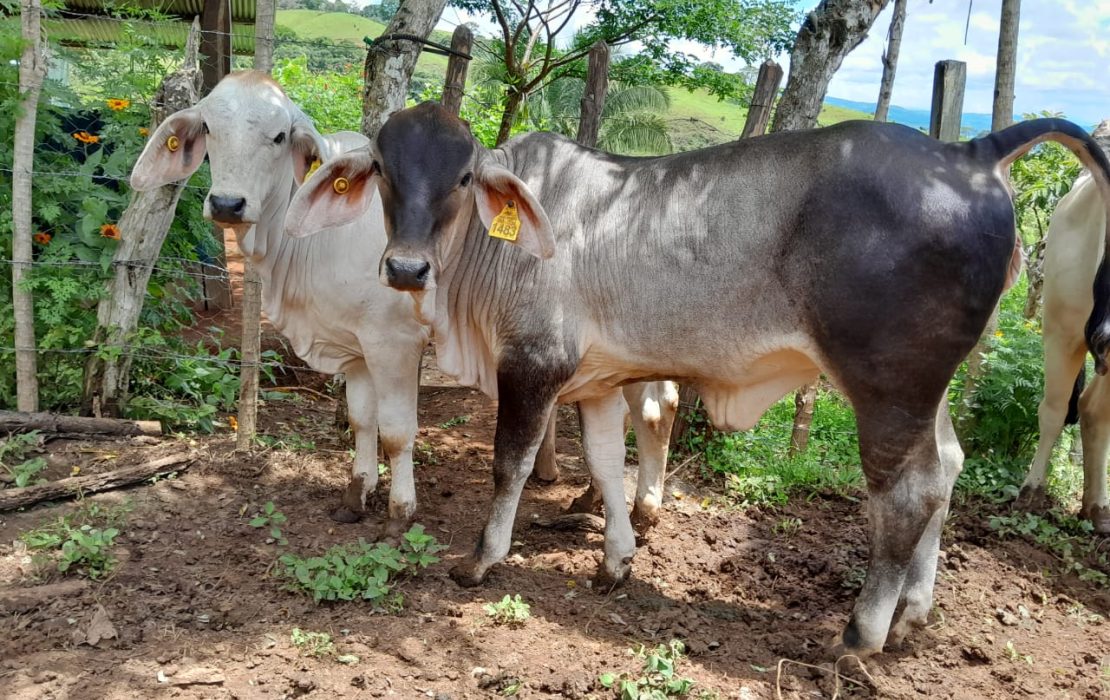
Under the certification scheme, farmers in Costa Rica are raising cattle according to deforestation-free production principles. Photo: FAO Costa Rica / Sarapiquí
In parallel, the Osa Conservation Foundation worked with participating farms to develop farm plans and provide basic investments that enable producers to meet these certification standards. These actions also contributed to regional reforestation and habitat restoration goals, as outlined in the country’s National Adaptation Plan (NAP).
The SCALA programme also conducted a market study to assess the current and potential demand for deforestation-free beef and differentiated dairy products. This research is helping identify new strategies for Costa Rican producers to access environmentally conscious markets.
As part of its gender mainstreaming efforts, SCALA also facilitated the development of a Gender and Social Inclusion Roadmap for Women in Livestock. This process included consultations with over 120 women and sector stakeholders from six regions in the country, identifying specific needs and opportunities to enhance women’s participation and leadership in sustainable livestock systems.
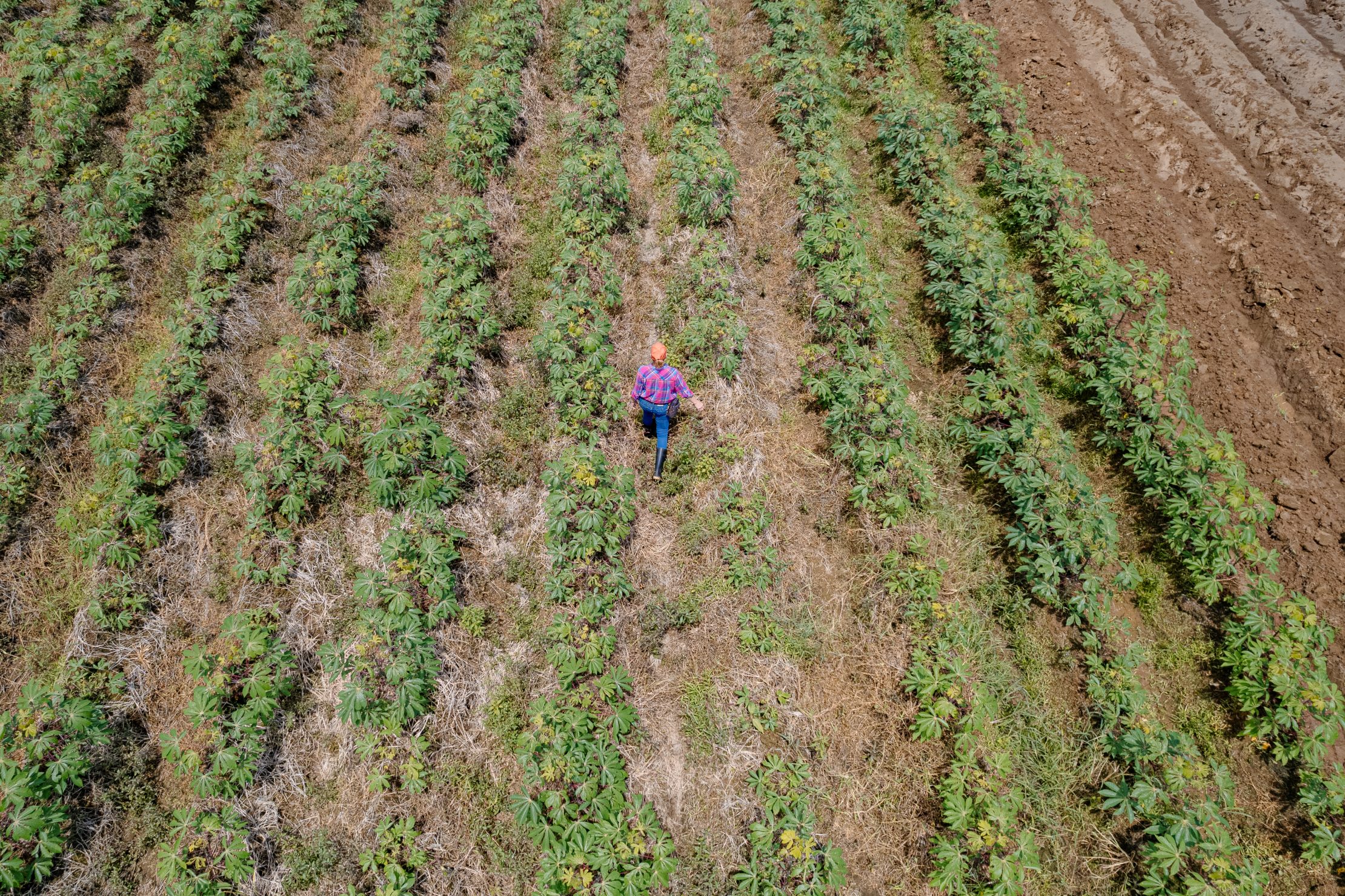
The SCALA programme supported Costa Rica in updating land use layers to reflect recent forest cover changes, ensuring more accurate data on deforestation linked to cattle farming. This updated information was integrated into the national traceability system and used to reinforce the credibility and transparency of the country’s deforestation-free beef certification process. Photo credit: FAO Costa Rica / Sarapiquí
The private sector is key for a resilient future
With its resources, innovation and influence on agricultural value chains, the private sector has a vital role to play in advancing national climate goals in agriculture and food systems. By investing in climate-resilient solutions, businesses can transform production systems, reduce emissions and enhance the resilience of communities, ecosystems and economies.
Regulatory shifts such as the European Union Deforestation Regulation (EUDR) are also creating new incentives for investment in sustainability and resilience. As markets increasingly demand deforestation-free and traceable products, producers must adapt not only to climate risks but also to evolving trade requirements. These dynamics present an opportunity to align adaptation goals with market competitiveness.
Realizing the potential for the private sector to drive climate action in the agriculture sector will require continued collaboration, enabling policies and innovative financing. Through public–private action and inclusive partnerships, the work that the SCALA programme is conducting in Cambodia, Côte d’Ivoire and Costa Rica demonstrates that sustainable, resilient value chains are not just possible but already taking shape.
*
Funded by Federal Ministry for the Environment, Climate Action, Nature Conservation and Nuclear Safety (BMUKN) through its International Climate Initiative (IKI), the UNDP-FAO SCALA programme supports private sector engagement in climate action across 23 countries by identifying challenges, mapping investment opportunities, and co-developing project concepts aligned with national climate goals. Through its Private Sector Engagement Facility, SCALA delivers targeted technical support and tools to bridge public priorities with private solutions and scale inclusive, sustainable investments.
